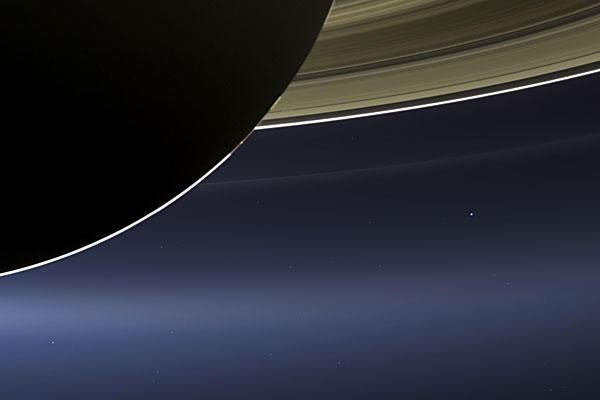Pale Blue Dot
- LASM

- Nov 13, 2013
- 2 min read
NASA just released a panoramic image of Saturn and some of its closest moons, but it also includes the tiny, blue dot we call home – planet Earth, some 900 million miles away. Taken by the Cassini probe now orbiting Saturn, the image also captures our companion worlds Venus and Mars. The panorama was pieced together from natural-color photographs taken in July.
Each pixel in the photograph represents about 45 miles. Seven out of Saturn’s 53 known moons are visible in their planet’s seven rings. There’s Prometheus, Pandora, Janus and Epimetheus near Saturn’s slim F ring. There’s Enceladus in the bright blue E ring. There’s Tethys, a yellow bulb, and Mimas, just a crescent, wedged between rings.

Venus is located to Saturn’s upper left, which is seen as a bright, white spot. Mars, a pale red dot, is above and to the left of Venus. There are 809 stars captured by Cassini’s lens in this image. And we Earthlings are on the blue dot at Saturn’s lower right.
This cosmic portrait had been planned for months and on July 19, NASA announced that all the conditions were right for such a picture, including that on this date, Saturn completely eclipsed the sun, allowing Cassini’s sensors to image this portrait. The cosmic photo is a composite of 141 images taken over four hours, selected out of 343 images total. The photograph was then digitally enhanced to pull from the blackness Venus, Mars, Earth, Saturn’s moons, and all the stars in the frame. Most of the objects in the photograph, including Earth, were brightened by 8 times relative to Saturn; some of the stars were brightened by as much as 16 times.
This was also the first time that humans were told in advance that Earth was being put before a camera. So, in what was called NASA’s “Wave at Saturn” campaign, the Cassini’s Imaging team asked us all to turn out for the July 19 picture day to wave and smile for the camera in the cosmos.





Comments